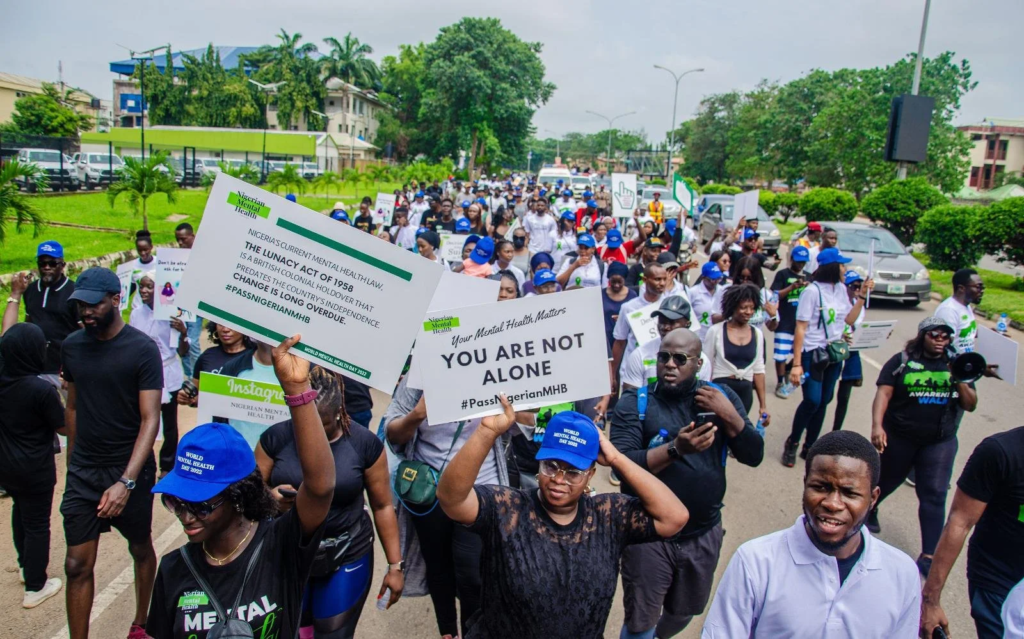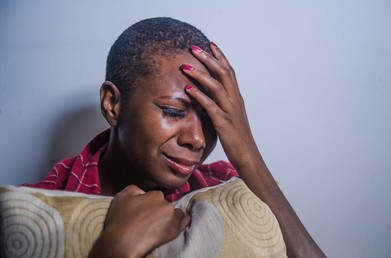When the gunfire stopped in Plateau State, the silence that followed felt thicker than the smoke that lingered in the air. In Zikke village, Ruth still wakes up at night to the echo of it. The massacre ended days ago, but the fear did not. Fifty-one people were buried, homes were burned, and the government moved on. What no one sees are the invisible wounds – the grief, the numbness, the panic that follows even when the sky is calm.
Every time tragedy hits Nigeria, we talk about the dead. We rarely talk about the living who no longer feel alive.
A Theme That Hits Too Close to Home
This year’s World Mental Health Day theme, according to the World Health Organization (WHO) and the World Federation for Mental Health (WFMH), is “Access to services: mental health in catastrophes and emergencies.” It is a call to action for countries to protect the minds of those who survive disasters, wars, and humanitarian crises.
WHO explains that nearly everyone affected by emergencies experiences psychological distress. Around 22% develop conditions like depression, anxiety, or post-traumatic stress disorder. In many low- and middle-income countries, between 76 and 90% of people who need care never get it. Now imagine what those numbers look like in Nigeria, a nation that has seen endless cycles of conflict, displacement, and natural disasters.
Survivors Without Support
The killings in Plateau are not new, yet each time they happen, the emotional aftermath is treated like background noise. The displaced find food and shelter if they are lucky, but mental health support is barely discussed. There are no structured counseling programs for survivors, no trauma centers in the villages where attacks occur, no public acknowledgment of what such violence does to the mind.
For many Nigerians, distress is dismissed as weakness. You hear it all the time; “You just have to be strong.” The problem is, strength without healing turns into silence, and silence becomes its own form of suffering.
Even before crises strike, access to mental health services in Nigeria is a luxury. Fewer than 400 psychiatrists serve a population of over 200 million people. There are not enough hospitals, not enough funding, and not enough willpower from the state. The newly passed Mental Health Act was a step forward, but implementation remains painfully slow.
The Cost of Ignoring the Mind
Insecurity is not only a political problem. It is also a psychological one. Children who witness attacks carry that memory for life. Women who lose their families to violence struggle with chronic fear and depression. Men who escape with nothing but their bodies live with survivor’s guilt. These wounds are invisible but real, and they bleed into communities that never quite recover.
If the government continues to rebuild homes without rebuilding minds, the trauma will recycle itself. A nation cannot truly move forward if its citizens are stuck emotionally in places they barely escaped alive.
A Different Kind of Emergency Response
The truth is that emergencies do not only destroy, they also reveal what is missing. The good news is that some Nigerians are already trying to fill the gap. Youth-led organizations like Mentally Aware Nigeria Initiative, She Writes Woman, and The Safe Place Nigeria are creating spaces where people can talk, seek help, and find community. They use social media and digital tools to reach those who would otherwise stay silent.
WHO also emphasizes the importance of community-based care, where support can be provided by trained locals, not just doctors. This model works in places with limited resources, and it has already been adopted successfully in post-conflict countries like Rwanda and Sierra Leone. Nigeria could learn from that.
The Plateau crisis could become the point where we finally start talking about mental health as part of national security, not a luxury topic for the privileged.
Where Do We Go From Here?
The government must integrate mental health response into every emergency management plan. Humanitarian workers should receive training in psychological first aid. Schools and religious institutions can create trauma support programs. And citizens, especially the youth, must keep normalizing conversations about therapy, trauma, and emotional recovery.
We cannot keep pretending that people simply “move on.” Healing is not automatic. It takes intentional care, and it begins with recognizing that mental health deserves the same urgency as physical safety.

The Silence After the Fire
When the gunfire stops, the silence becomes louder. You can rebuild homes, replace doors, and bury the bodies, but how do you bury the fear? The Plateau killings are not just a story about violence; they are a mirror of how much we ignore the inner damage that follows catastrophe.
Until Nigeria learns to treat mental wounds like physical ones, peace will remain a word we say, not a state we live in.
For more stories, visit our website and follow us @Insidesuccessng for more updates and info. Subscribe to Inside Success Nigeria for exclusive content, expert-led events, job opportunities, and more.


Leave a Reply